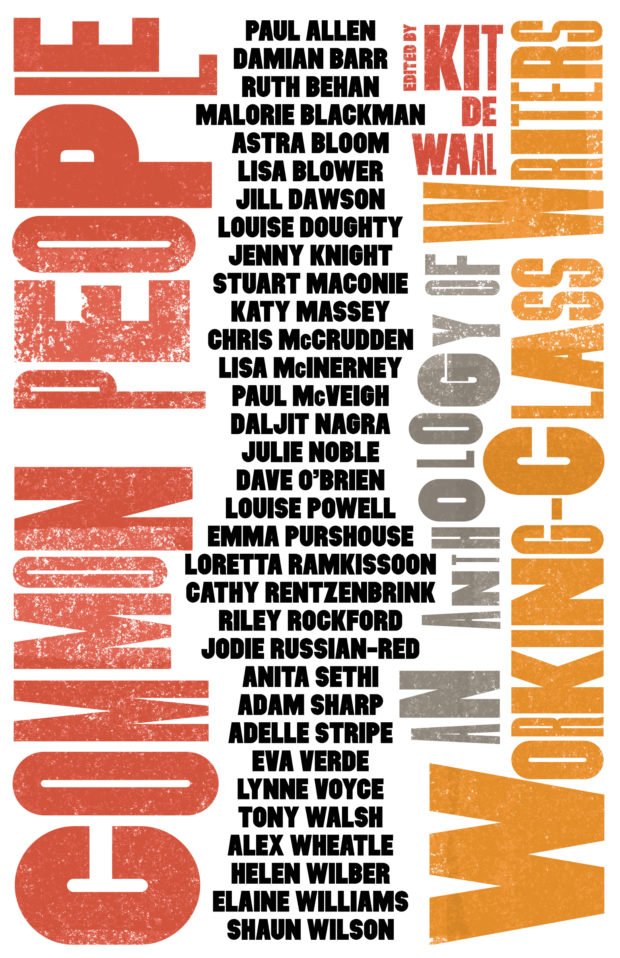You have no items in your cart. Want to get some nice things?
Go shopping
“Common People is a collection of original essays, poems and memoir written in celebration, not apology.” So it says on the back cover.
There is no doubt that the publishing world does not reflect the demographics of the world we live in. And I think as readers we suffer as a result.
But there you go! This is 2019. The UK is still run by the public-school Oxbridge elite (and happens to be up a famous creek without a paddle – not that I’m drawing a conclusion about that – just saying).
But back to the book, there are some angry polemics here – so far, so predictable but not – to be fair – unjustified. And a lot of the stories and essays were written by writers writing about being writers and the writing experience as a (working-class) writer. That’s great and everything, but I didn’t feel these writers were saying anything new.
I was also confused by the notion that if you’re not working class – that is, growing up on a council estate – you have a land rover in the drive, stables in the garden and are probably “setting foot in the Bullingdon club”. This rags-to-riches contrast cropped up in a few of the pieces and I found it irksome.
Aren’t most of us somewhere between the council estate and the country manor? Isn’t Britain full of streets with semi-detached and terraced houses that go on for miles? And what about all those redbrick estates full of houses – like the one where Harry Potter lived before he went to Hogwarts? Most of us live in places like that, so how come when some of the writers who contributed to Common People left their council estates, they only seemed to meet people privileged Tories?
But aside from all this, Common People has some real gems – too many to list here, but definitely Chris McCrudden’s “Shy Bairns Get Nowt”,which drew on his own experience and family history to explore perceptions of class. “For some people, class is a vector… For others it’s a fixed point.”
And I loved Katy Massey’s clever and entertaining account of her mother’s business and life in a brothel, which showed the intersection of class prejudice and misogyny. And Jodie Russian-Red’s “The Wedding and the Funeral” was a great piece of storytelling.
However, too many of the pieces focused on childhood memories and it would have been nice to have more variation, like Dalgit Nagra’s beautiful profile of a contemporary, “Steve”, and Paul Allen’s wonderful memoir of life as a bricky, “No lay, no pay”.
I also loved “Little Boxes”by Stuart Maconie, which is full of history about housing, Nye Bevan and facts about architecture, interwoven with his experience of growing up on an estate where streets were named after literary figures. An utterly informative and captivating piece of writing.
With over thirty contributions from as many writers, Common People shines a light on the huge diversity of people in the United Kingdom and celebrates this richness loudly. I loved the variety of dialect, racial heritage and regional culture.
Considering the UK is quite a small collection of islands and nations, it is incredibly rich in language and culture and the publishing / literary world is missing a trick not exploring that.
Kit de Waal and Common People have done a great job of highlighting that.
Common People is published by Unbound.

About Juno Baker
Juno Baker is a freelance writer, and editor of the University of Cambridge's Leading Change website. She has written articles for the Guardian and once interviewed Dolly Parton. Her fiction has been placed in several competitions – including Winchester Writers Festival, Pindrop, Short Fiction and Rubery – and was recently shortlisted for the VS Pritchett Short Story Prize. Her stories have also appeared in numerous magazines and anthologies, most recently, Mslexia, Unthology and Litro.
- Web |
- More Posts(13)





Thank you Juno. That’s very much appreciated x